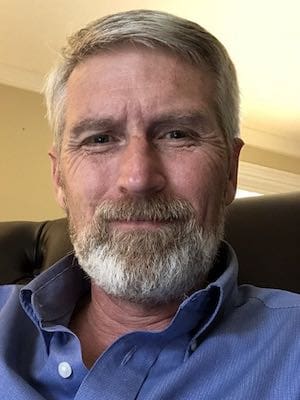Scientists are in wide agreement that global warming is real. Carbon dioxide and methane gases have increased in our atmosphere over the years and scientists believe these are mostly to blame for the warming phenomena which are causing more frequent extreme weather, disappearing glaciers and ice cover in both the Arctic and Antarctic Sea regions, and a rise in the ocean’s temperatures.
Even so, some prominent Christians don’t believe the evidence and use their influence to slow the efforts of America to go green. Richard Land is one of these. He’s the head of the Southern Baptist Convention’s Ethics and Religious Liberty Commission.
On Land’s March 1 radio broadcast he said: “A lot of this stuff that is being talked about with hysterical tones with global warming is quackery. When I see Al Gore and I hear him talk, in the distant background I hear ‘quack, quack, quack.’ Not because a duck is drowning because there’s no ice for him to sit on, but because this is pure quackery.”
In fact, Land reported on his show that colder temperatures this winter in some regions indicate that the earth is now cooling, not warming. Unfortunately he received some errant information that the colder winter in some areas was “enough to erase nearly all of the global warming recorded over the past hundred years.” Land should have checked with the scientists before he spread such errant information, but Land doesn’t believe the scientists.
I must admit comments can get a bit outlandish on this subject. Ted Turner seemed way out there recently when he said that if we fail to address global warming, the temperature will rise over the next 30 to 40 years to the point that crops won’t grow, most people will die, and those who are remaining will become cannibals.
So that frames the debate on global warming, with Ted Turner saying we are going to become cannibals and Richard Land calling people “quacks” who believe the global warming evidence. What position is a level-headed Christian to take? Does the Bible help us on this subject?
By now, most have heard of the term carbon footprint. “A carbon footprint is a measure of the impact our activities have on the environment in the amount of greenhouse gases we produce. It is measured in units of carbon dioxide.”
Your carbon footprint is larger if you drive a Hummer than if you drive a Kia. Your carbon footprint increases in the summer if you keep your air-conditioning set on 68 degrees rather than 78. Your carbon footprint increases if you wash your jeans every time you wear them rather than wear them more than once or if you wash them in hot water as opposed to cold.
Some say Christians we shouldn’t worry about the earth because the earth can’t be saved. It’s passing away. These people say the Bible tells us that in the end the earth will be consumed and destroyed and if we place our time and efforts trying to save this world it distracts us from our primary task, saving souls.
But this is like saying we should not take care of our bodies because we are going to die anyway. It’s like saying the most important thing is to make sure people are saved, that they know Jesus so when they die they can go to heaven; so we shouldn’t be concerned about how people treat their bodies.
Just as God commanded Adam and Eve in how to care for their bodies by instructing them which trees to eat from and which ones to avoid in the garden, God also commanded them to take care of his creation: “Let us make man in our image, in our likeness, and let them rule over the fish of the sea and the birds of the air, over the livestock, over all the earth, and over all the creatures that move along the ground.” Gen. 1:26 (NIV)
The word “rule” or “dominion” brings with it a certain level of responsibility. We are entrusted with making decisions about the environment. God gave us the power to enact our will upon the animals and the ecosystem. That power can be abused or we can use that power in good faith. Thus, being good stewards of what God has entrusted to us is the beginning point of earth care for Christians.
If Americans comprise 5 percent of the world’s population, yet use 30 percent of the world’s resources, we should ask the question, “When have we used enough resources?” as a part of our stewardship plan.
Ezekiel asked the question: As for you, my flock … is it not enough for you to feed on good pasture? Must you also trample the rest of your pasture with your feet? Is it not enough for you to drink clear water? Must you also muddy the rest with your feet?” (34:17-18)
This passage challenged the people to take what they needed without wasting. That’s the ethic we need to live by. Collectively we can make a difference if we cease being wasteful people. We’ve all heard the challenges. Turn down the thermostat in the winter and turn it up in the summer. Choose energy-efficient appliances. Change your home’s air filters on a regular basis. Make the switch to compact fluorescent bulbs. Wash your clothes with cold water. Switch to green power. Pump up your tires to the correct pressure, saving fuel. Turn off computers, monitors and lights when not in use. Recycle.
These are just a few suggestions of how we stop waste and reduce our carbon footprint. If every one of us begins to do these and other important environmentally friendly actions, the earth will respond and we will see changes that will make a difference.
Michael Helms is pastor at Trinity Baptist Church in Moultrie, Ga.

